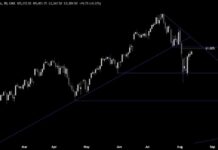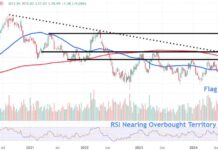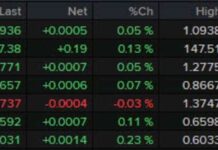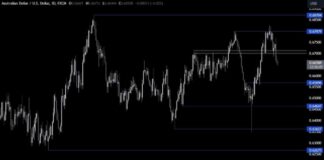The focus in the markets shifted to Europe as US markets were closed for Thanksgiving. Inflation data from Belgium, Spain, and Germany was released before the upcoming EMU figure. Spanish CPI remained flat month on month in November but increased on a yearly basis to 2.4% due to base effects. Core inflation in Spain decreased slightly from 2.5% to 2.4%, lower than the consensus estimate of 2.6%. German prices dropped by 0.7% month on month, keeping the yearly figure at 2.4% instead of the anticipated 2.6%. Italy and France are yet to report their inflation numbers, but the data so far suggests potential downward risks for the EMU. Despite this, there was little movement in German yields during the releases, indicating that there may not be significant changes in bond yields. The European Central Bank (ECB) is already pricing in a policy rate trough of around 1.75%, leaving little room for easing bets. ECB board member Schnabel emphasized this point in a recent interview, while French counterpart Villeroy hinted at the possibility of going below neutral rates. Villeroy’s comments led to additional gains in Bunds, pushing yields down further. French bonds have also been in the spotlight recently due to concerns about the government’s ability to pass the 2025 budget and reduce the deficit. French Finance Minister Armand indicated a willingness to amend the budget to avoid a no-confidence motion. However, any delays in fiscal consolidation could raise concerns in financial markets and impact the euro’s recovery. The political uncertainty is seen as a negative factor for the euro, which may face resistance in its upward trend. In the forex market, the EUR/USD pair retraced some of its gains to trade around 1.0533, while the EUR/GBP pair eased towards 0.832.
In Belgium, headline inflation slowed to 0.17% month on month in November, with the annual figure remaining stable at 3.2%. The recent increase in inflation is attributed to the expiration of the basic package for electricity and natural gas. Energy inflation rose from 7.26% to 9.44% year on year, a trend expected to continue until February 2025. Price increases were observed in clothing, household appliances, holiday villages, and food items like bread and cereals. On the other hand, the transport sector experienced price drops. Core inflation in Belgium returned to the September level of 2.8% year on year, reversing the October increase. Services and rent inflation were lower on an annual basis this month. Food inflation rose slightly month on month but decreased year on year due to base effects. The initial estimate for the European HICP flash estimate for Belgium in November 2024 is 4.9%.
The Brazilian real reached a record low of USD/BRL 6 for the first time, following Finance Minister Haddad’s proposal of $12 billion in spending cuts. However, the market views these measures as insufficient and belated. Brazil’s public finances have been under strain since President Lula da Silva took office in 2023 with promises to improve living standards. External factors like weather events have further impacted the country’s financial situation. The increase in inflation led to a reversal in the Brazilian central bank’s policy, with key interest rates being cut and then raised in subsequent months. The weakness of the Brazilian real is adding to inflation concerns, signaling the possibility of further tightening measures.
This information from KBC Bank provides insights into short-term forecasts for financial markets. It is essential to note that these predictions may not always materialize, and the bank cannot be held responsible for any losses resulting from the use of this information. The document does not constitute personalized investment advice or a recommendation to buy, sell, or hold any investments mentioned. While the information is sourced from reliable channels, KBC does not guarantee its accuracy and the opinions expressed are subject to change.

















